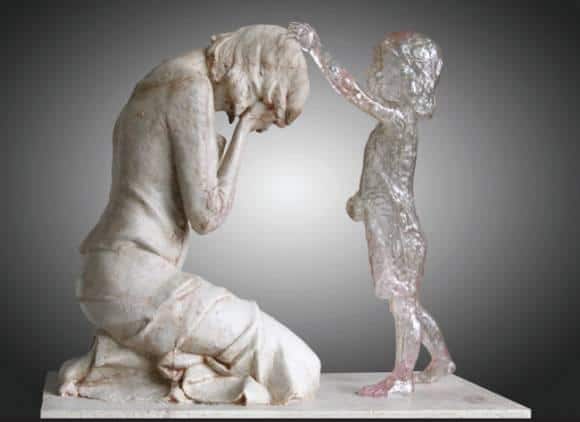It is not often I read a research article that I think would be appropriate reading for multiple audiences. There is a recent study, however, that I believe should be read by anyone who works with or loves families who are impacted by stillbirth.
Silent loss and the clinical encounter: Parents’ and physicians’ experiences of stillbirth – a qualitative analysis by Maureen C. Kelley and Susan B. Trinidad was published in BMC Pregnancy and Childbirth in November 2012. The study was part of a needs assessment completed by the Global Alliance to Prevent Prematurity and Stillbirth (GAPPS).
I encourage you to read it (available here). There are many pearls and insights that can help us understand stillbirth families, obstetrics providers, and ourselves.
Among many fascinating findings, the authors identify the need for families and health care professionals to work together regarding many of the issues surrounding stillbirth. This is not a concept that is hard to understand or one that should be a significant challenge. But it is one that needs to be adopted! Kelley and Trinidad point out that the stigma and taboo associated with stillbirth create a significant concern for families after a stillbirth and impacts how health professionals are willing or able to care for their patients during a most difficult time.
 With Mother’s Day quickly approaching, I felt like this was an appropriate time to read this particular message. The taboos and stigmas around stillbirth can multiply the pain felt by grieving families on holiday such as these. Many, many parents have asked themselves if they really ARE a parent if their only child has passed away. It is heartbreaking that this is even a question in our society. Are you still someone’s son or daughter if your parents die? Of course! So, why would we think the title of parent doesn’t apply in cases of pregnancy or infant loss? This is just one of many issues addressed in this article.
With Mother’s Day quickly approaching, I felt like this was an appropriate time to read this particular message. The taboos and stigmas around stillbirth can multiply the pain felt by grieving families on holiday such as these. Many, many parents have asked themselves if they really ARE a parent if their only child has passed away. It is heartbreaking that this is even a question in our society. Are you still someone’s son or daughter if your parents die? Of course! So, why would we think the title of parent doesn’t apply in cases of pregnancy or infant loss? This is just one of many issues addressed in this article.
One of the best Mother’s Day, Father’s Day, or Any Day gifts we can give to parents of stillborn children is to recognize all of their children. This starts by bringing stillbirth out of the shadows. The above article highlights the people who can lead the charge – our health care professionals. By being the first people we encounter during loss, they can set the tone and model appropriate care for other health professionals, our families and friends, and our communities. By speaking up about the issue and the need for better answers and prevention, they can unite with families who feel powerless in the medical environment. By being leaders in our society, they can call for and inspire change of the social stigmas and sociopolitical issues that often make a tragic situation even worse.
Thank you to BMC Pregnancy and Childbirth for publishing this study and Kelley and Trinidad for bringing research to this topic. Thank you to the parents, health care providers, or organizations that are already doing your part. Thank you to those of you who recognize that YOU can make a difference!

3 Comments
thank you for this letter and the link to the research. it is very meaningful and i hope will help others
I love this thanks Lindsey, btw the figurine is beautiful!
Thank you for sharing the article/link. I recently encountered a Stillbirth on May 3,2013 (40weeks). My firstborn at the age of 40. A daughter, my precious Savannah. My entire pregnancy was great, all test and screening were “perfect” (so the doctors told me). Until that dreadful day during a regularly scheduled NST, they told me no heartbeat “I’m sorry your baby has passed”. Stillbirth was not a brand new term but to a mother who had been told for several months “everything looks/sound good”, stillbirth was brand new to me!
As a part of my healing, I am starting my very own web/blog, and gaining knowledge from this awful tragedy. Although no one should ever have to experience such tragedy, it happens and should be talked about more.